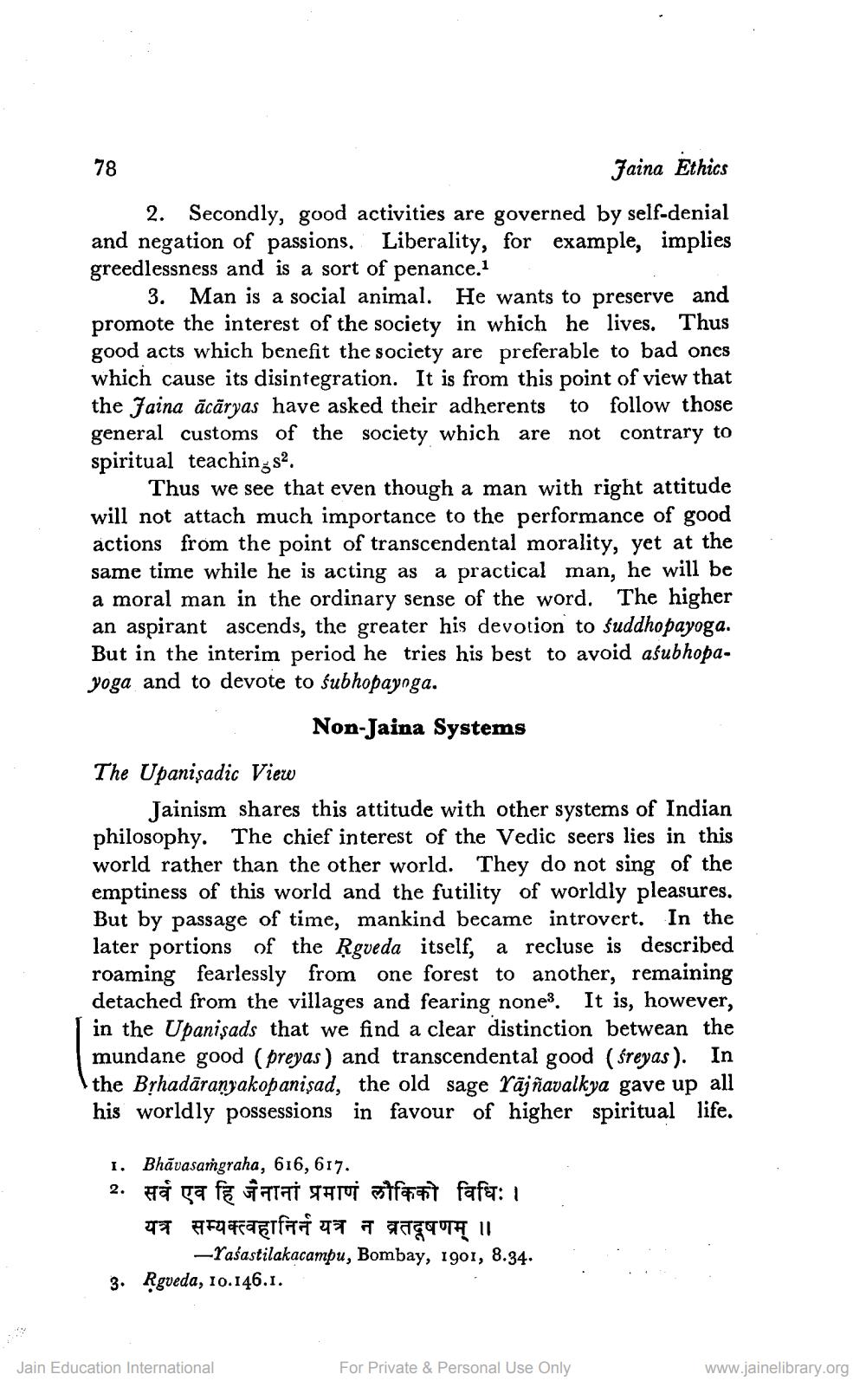________________
78
Faina Ethics 2. Secondly, good activities are governed by self-denial and negation of passions. Liberality, for example, implies greedlessness and is a sort of penance.1
3. Man is a social animal. He wants to preserve and promote the interest of the society in which he lives. Thus good acts which benefit the society are preferable to bad ones which cause its disintegration. It is from this point of view that the Jaina ācāryas have asked their adherents to follow those general customs of the society which are not contrary to spiritual teachings.
Thus we see that even though a man with right attitude will not attach much importance to the performance of good actions from the point of transcendental morality, yet at the same time while he is acting as a practical man, he will be a moral man in the ordinary sense of the word. The higher an aspirant ascends, the greater his devotion to fuddho payoga. But in the interim period he tries his best to avoid aśubhopayoga and to devote to śubhopaynga.
Non-Jaina Systems The Upanişadic View
Jainism shares this attitude with other systems of Indian philosophy. The chief interest of the Vedic seers lies in this world rather than the other world. They do not sing of the emptiness of this world and the futility of worldly pleasures. But by passage of time, mankind became introvert. In the later portions of the Ķgveda itself, a recluse is described roaming fearlessly from one forest to another, remaining detached from the villages and fearing noney. It is, however, in the Upanişads that we find a clear distinction betwean the mundane good (preyas) and transcendental good (śreyas). In the Byhadāranyakopanişad, the old sage rājñavalkya gave up all his worldly possessions in favour of higher spiritual life.
1. Bhāvasamgraha, 616,617. 2. सर्व एव हि जैनानां प्रमाणं लौकिको विधिः । यत्र सम्यक्त्वहानिर्न यत्र न व्रतदूषणम् ।।
-Yaśastilakacampu, Bombay, 1901, 8.34. 3. Rgveda, 10.146.1.
Jain Education International
For Private & Personal Use Only
www.jainelibrary.org




